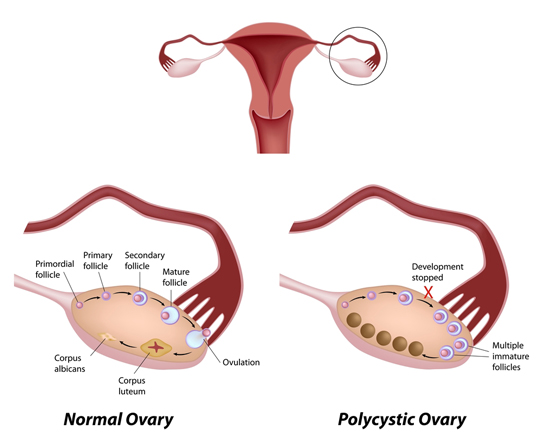How Much Do You Know About PCOS?
April 28, 2022 Return


Dr Kim Wong Consultant Obstetrician & Gynaecologist
They say to understand a woman, you have to go to the root of the problem to know what is really troubling her. And, this is very true of PCOS.
The number of women diagnosed with PCOS is on the rise globally. According to Dr. Kim, the prevalence of polycystic ovarian syndrome or PCOS is about 1 in 10- 20 women, which makes up about 5-10% of women of the reproductive age group. It seems that urbanization and stress may play a role in this.
So, what exactly is polycystic ovarian syndrome (PCOS)?
PCOS is a hormonal disorder which can affect women of the reproductive age.
And, there are 2 plausible reasoning for its occurrence:
- Your genes. It could potentially be hereditary that this occurs, where the genes are passed down directly. On the other hand, it could be your genetic makeup that is the culprit. For instance, if someone in your family has PCOS, the chances of you having it are increased.
- Lifestyle. The way you live your life could also trigger PCOS. For example, a poor diet, a sedentary lifestyle and stress may affect your chances in having PCOS.
How do I know if I have it?
According to Dr. Kim, the 4 signs to look out for are:
- Irregular menses. Although factors such as pregnancy should not be excluded, visit a doctor if your menses are not as regular as they should be or if you experience heavy bleeding for days – especially if you have passed adolescence.
- Abnormal hair growth. If you notice that you are having a moustache, pubic hairs that grow up to your navel, hairy legs and arms, bushy eyebrows, or receding hair lines similar to those of a male’s baldness, then visit a doctor.
- Obesity. Most women with PCOS are obese with weight gain observed around the waistline. They also tend to have a BMI of above 30.
- Have oily skin and acne
“PCOS can, in fact, happen to any woman of the reproductive age and when they are meant to menstruate on a regular basis,” says Dr. Kim.
The kind of tests required…
- A transvaginal ultrasound. The ovaries usually appear enlarged with small cysts in it when a scan is done. Each cyst is measured to be around 8mm in size.
- Diagnosis based on clinical history. Your doctor will look out for common symptoms such as abnormal hair growth, irregular menses and acne or hair problems. A transvaginal ultrasound usually follows once the symptoms are identified. A blood test may also be necessary to support diagnosis.
Can it be treated..?
“Treatment varies according to symptoms,” says Dr Kim.
For weight and acne problems: Exercise and eat a well-balanced diet that contains the right proportion of carbohydrates, proteins, fibres and vitamins. Speak to a nutritionist if you are having trouble following the diet.
For abnormal health growths: Permanent removal of excess hair is possible through laser therapy or you can opt to for medications to control hair growth.
For acne problems: Birth control pills are usually prescribed to resolve acne problems as they can reduce testosterone levels, which in turn reduce both acne and excessive hair growth.
For menstruation problems: A progesterone therapy is usually prescribed to those with irregular menses or experiencing prolonged heavy bleeding. Birth control pills can also be used for those with irregular menses.
For infertility problems: Fertility drugs such as clomiphene or FSH injections may be given to treat infertility.
And the complications are…?
- Infertility
- Difficulty to conceive
- Womb cancer
- High risk of developing type 2 diabetes at a later age, stroke and heart attack
- Prolonged periods of no menses (known as amenorrhoea) if left untreated or not treated properly.
And if you do get pregnant, you may experience one or more of the following complications:
- Gestational diabetes
- Hypertension
- Premature delivery
- Miscarriage
Is there a way to minimise risks..?
You can minimise your risk simply by living a healthy lifestyle:
- Eat a balanced diet. A diet that follows the food pyramid and contains the right balance of carbohydrates, proteins, fibres and vitamins will do the trick. Best to avoid fine sugar, processed food, canned or sugary drinks.
- Exercise at least once a day for 30 minutes.
- Have enough rest and sleep daily. 8 hours of sleep should be enough for women of reproductive age while 6-7hours of sleep for those in menopause and older.
Don’t be shy, just come forward
“It is okay to come forward and have a chat with a doctor should you face any of these difficulties. Don’t just sit on the problem and wait. Get it treated before it becomes worse,” Dr. Kim advices.
The most obvious symptom that could indicate PCOS is when you are not menstruating on time. Visit a gynaecologist if this happens.
If you like this article, do subscribe here.
